| Grantee | Rare ↗ |
| Grant Amount | 250000 |
| Duration | 18 Months |
A harmonized regional approach to registering artisanal fishers: Scaling transparency in fisheries management
Effective fisheries management – whether in a small-scale or industrial context – depends on transparent access to data that shows who is fishing, and how much and from where fish are caught, making fisher registration a central pillar of effective management. Moreover, fisher registration serves as a foundation upon which systems that measure how much and from where – such as digital catch recording and vessel monitoring – can be built.
Central America, through the eight members of Central American Fisheries and Aquaculture Organization (OSPESCA), has an opportunity to become the first region in the world with a harmonized, integrated approach to collecting and sharing data crucial to effective coastal fisheries management and marine protection across multiple countries. The region’s fisheries and aquaculture contribute 2.5 billion dollars a year to the economy, accounting for 2.6% of its GDP. Given the connectivity of the region’s seascapes, the more than 60,000 fishing vessels and 150,000 fishers making use of its marine resources, and the historic decline in its fisheries year after year, the coordinated and effective management of its waters is critical to reversing degradation, building resilience, and ensuring the sustainable development of its nations.
Rare will work with OSPESCA and local consultants familiar with the national systems in place to
1) to identify the legal, technical, and financial pathways to strengthen existing fisher registration systems in each country and harmonize fisher registration data across OSPESCA countries; and
2) work with OSPESCA member countries to align on shared principles around transparency in the use of data for coordinated fisheries management and aquaculture.





















